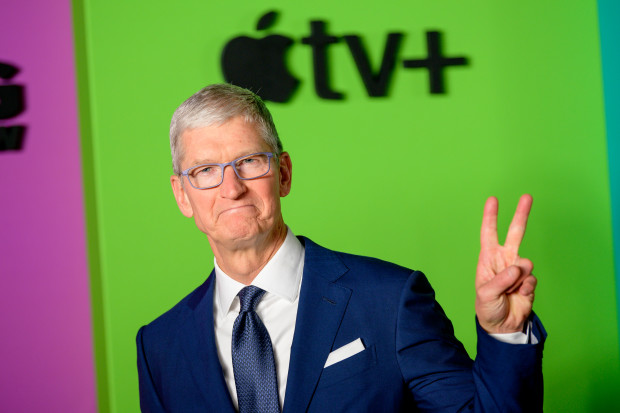
Despite it being a trillion dollar company (make that $2.9 trillion, to be exact), Apple is still always looking for room to grow.
The largest company in the world, which is set to release a lineup of new iPhones at its annual event on September 12, has made no secret about its attempts to enter and disrupt the media and entertainment sphere.
DON'T MISS: Apple Music (finally) has something that could kill Spotify
Suffice it to say, though, that iPhones are now an incumbent technology. It's estimated that 1.46 billion people are active iPhone users -- and given that there are eight billion people in the world, that means roughly 1 in every 8 earth dwellers uses an iPhone. Not too shabby for a company that started in a garage.
So now Apple (AAPL) -) is turning its attention to other matters that typically start in a garage: music.
Of course, the industry is nothing new to Apple. In the early 2000s, music was to Apple what books were to Amazon (AMZN) -). It's essentially what put the company on the map.
The first iPod was released in 2001, and with it came iTunes, the revolutionary music service that allowed Apple users to buy and download their favorite tunes across their devices. Apple founder and CEO Steve Jobs, who emphatically believed people wanted to own their music, ultimately put music at the core of his business personality and ultimately, his success.
Subscriptions were not a part of Apple's business plan. But times have changed, and so has Apple's tune.
Apple gets a new deal
Apple has mostly retired iTunes and replaced it with the much snappier (and subscription-enabled) Apple Music. Users can now access their favorite library of songs and podcasts on the app, and, for fee of $10.99 per month, can stream millions of songs and audio ad-free.
Gone are the days of Jobs saying subscription services are outdated and "treat you like a criminal." What's old is new again, but a different startup, Spotify (SPOT) -), reigns supreme in the subscription music space.
Spotify has gained most of its ground through two ways. First, it was the primary player in the space, first to it in 2006 -- before most other giants jumped in. Second, it's got a killer algorithm, and makes new song recommendations to users based on their listening habits. Third, it makes monster deals with creators. It reportedly paid UFC commentator and comedian Joe Rogan $200 million for his giant podcast, which fetches an average of 11 million downloads per episode.
Exclusivity, in other words, can set you apart from the competition. So Apple is dipping its proverbial toe into the space now too, buying Swedish classical music record label BIS Records.
The record label, which was founded in 1973, works with many indie and lesser-known classical music artists and has won awards and is known in the industry for its quality and range.
The acquisition is thought to be a part of Apple's push into classical music; it bought music discovery startup Platoon in 2018 and streaming service Primephonic in 2021. Most recently, Apple released the Apple Music Classical app -- which is meant for classical music purists -- in March.
"There have been numerous moves of late by Apple to further support creativity within the classical space, not the least of which was the release of Apple Music Classical earlier this year. Apple and BIS also share a fundamental belief in the importance of preserving audio quality. As you are all aware, BIS has always been about exceptional sound quality, and Apple's dedication to sound, as well as to Spatial Audio, is something I have followed with interest," BIS founder Robert von Bahr said in a statement.
"BIS will become part of Apple Music Classical and Platoon. As proud as I am of this milestone, I am even more proud of the fact that the entire personnel of BIS, including me, have been retained. We all look forward to a future, filled with new music and artists in golden sound from this increased force in classical music."







